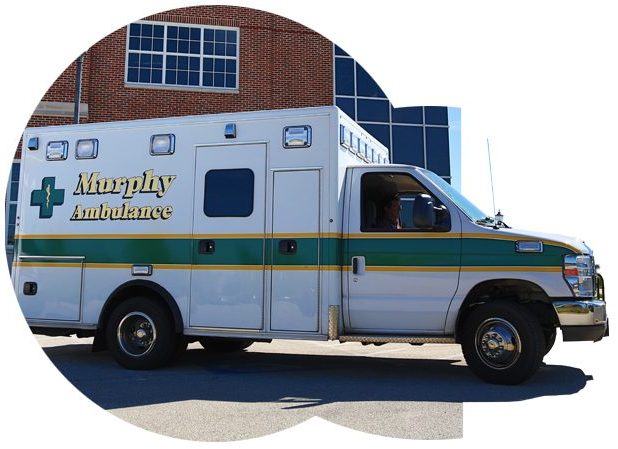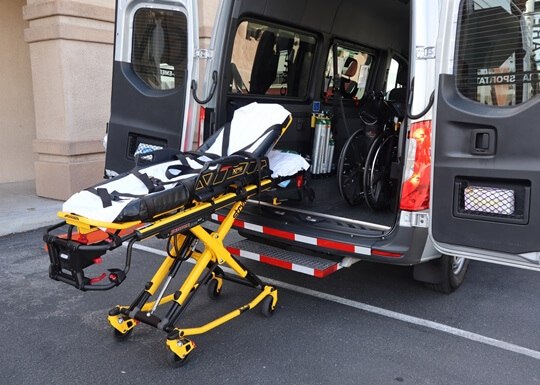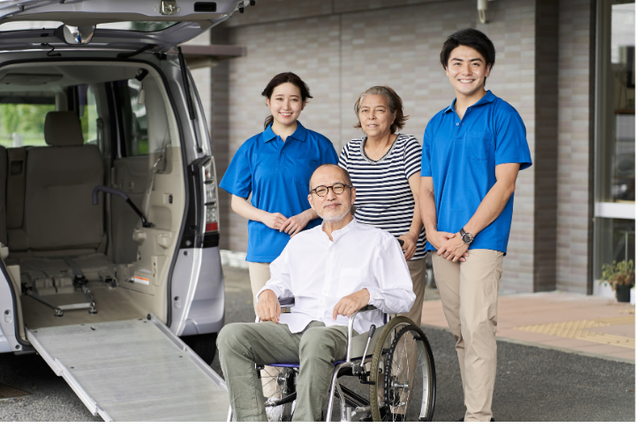Obtainable and Affordable Medical Transportation Options for Seamless Health And Wellness Assistance
In the realm of health care, the access and price of medical transport are vital in making sure people can access the treatment they require when they require it. The capacity to perfectly browse transportation options can significantly impact a person's capability to receive prompt clinical interest, follow-up care, and total health. From non-emergency clinical transportation solutions to cutting-edge options like telehealth, the landscape of clinical transport is evolving to fulfill the diverse needs of patients. Considering the significance of this element in healthcare delivery, exploring the selection of options readily available becomes crucial for attending to voids in ease of access and price.
Non-Emergency Medical Transportation Provider

These services are staffed by experienced specialists who focus on person convenience and safety during transit. Drivers are outfitted to deal with individuals with varying medical needs and ensure that all journeys are stress-free and smooth - Medical Transportation Services Near Me. In addition, non-emergency clinical transport services commonly use customized cars that are wheelchair-accessible, making them suitable for a large range of people with different mobility demands
Volunteer Motorist Programs
Volunteer motorist programs are important in supplying transportation support for people seeking non-urgent treatment. These programs count on the kindness of volunteers that donate their time and vehicles to aid transport clients to and from medical appointments. By using volunteer vehicle drivers, organizations can use a cost-efficient option for individuals who might not have accessibility to dependable transportation.
Among the key benefits of volunteer motorist programs is the customized care and focus that individuals receive. Unlike typical transportation solutions, volunteer vehicle drivers frequently establish a connection with the individuals they assist, producing a helpful and caring atmosphere throughout what can be a stressful time. In addition, volunteer motorist programs can aid connect the space for individuals staying in country or underserved locations where public transport options may be restricted.
Public Transport Options

Among the vital benefits of public transportation is its widespread schedule in rural and metropolitan locations alike. This substantial network allows clients from varied histories to travel to medical visits with relative convenience. In addition, mass transit systems are often equipped to accommodate people with impairments, giving obtainable travel alternatives for those with mobility challenges.

Ride-Sharing and Transportation Network Companies
The development of contemporary transportation choices for clinical objectives extends beyond typical public systems like trains and buses to encompass the cutting-edge world of ride-sharing and transportation network firms. Ride-sharing services such as Uber and Lyft have actually transformed the method people travel to clinical consultations, supplying benefit and flexibility to people that may not have access to their lorries or conventional public transport. These systems permit customers to request an adventure with the touch of a button on their mobile phones, providing door-to-door service that can be particularly advantageous for people with movement difficulties or those requiring help.
Transport network companies (TNCs) have actually likewise played a substantial role in bridging the gap in clinical transportation services. Companies like Veyo and RoundTrip focus on non-emergency medical transport, providing to clients who require a greater degree useful throughout their trips to medical facilities. By partnering with doctor and insurance firms, TNCs ensure that people can access trustworthy and prompt transportation remedies, inevitably contributing to improved wellness end results and patient fulfillment.
Telehealth and Virtual Examinations
Enhancing health care ease of access and convenience, telehealth and online assessments have actually become pivotal components in contemporary medical techniques, revolutionizing the method individuals connect with health care carriers. Telehealth leverages technology to assist in remote interaction in between individuals and health care experts, providing a broad selection of solutions such as digital appointments, remote monitoring, and digital prescriptions. Digital examinations next page make it possible for individuals to look for medical advice, medical diagnosis, and treatment from the convenience of their homes, getting rid of the need for physical brows through to health care centers. This approach not just saves time and minimizes transportation costs for people but likewise improves the general performance of healthcare delivery.
In addition, telehealth plays a vital role in extending clinical solutions to underserved areas, backwoods, and people with restricted movement. By damaging down geographical obstacles and enhancing medical care outreach, telehealth advertises early treatment, continuity of treatment, and individual engagement. As modern technology remains to development, telehealth is poised to play an increasingly substantial function in shaping the future of medical care delivery, cultivating enhanced health results and patient contentment.
Final Thought

From non-emergency medical transport services to cutting-edge services like telehealth, the landscape of clinical transportation is evolving to fulfill the diverse demands of clients.Non-Emergency Medical Transportation Solutions help with the timely and secure transport of people needing non-urgent clinical care to and from medical care facilities.The advancement of modern transportation alternatives for medical functions extends past conventional public systems like trains and buses to encompass the ingenious world of ride-sharing and transportation network business.Transport network firms (TNCs) have likewise played a significant function in linking the gap in medical transport solutions. Non-Emergency Medical Transportation Solutions, Volunteer Vehicle Driver Programs, Public Transport Options, Ride-Sharing and Transportation Network Business, and Telehealth and Virtual Consultations all play an important role in attending to transportation barriers to medical care access.